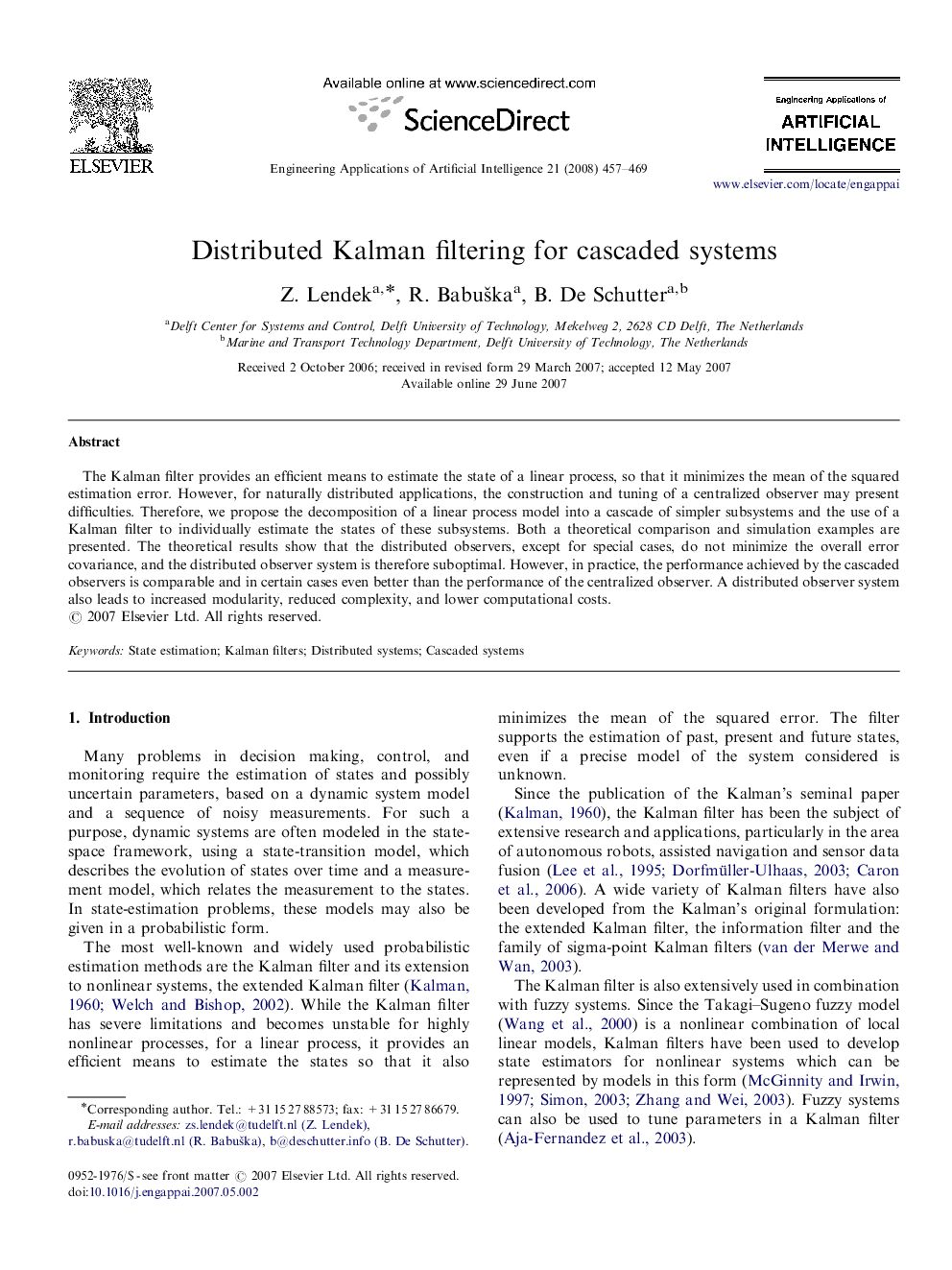| Article ID | Journal | Published Year | Pages | File Type |
|---|---|---|---|---|
| 381400 | Engineering Applications of Artificial Intelligence | 2008 | 13 Pages |
The Kalman filter provides an efficient means to estimate the state of a linear process, so that it minimizes the mean of the squared estimation error. However, for naturally distributed applications, the construction and tuning of a centralized observer may present difficulties. Therefore, we propose the decomposition of a linear process model into a cascade of simpler subsystems and the use of a Kalman filter to individually estimate the states of these subsystems. Both a theoretical comparison and simulation examples are presented. The theoretical results show that the distributed observers, except for special cases, do not minimize the overall error covariance, and the distributed observer system is therefore suboptimal. However, in practice, the performance achieved by the cascaded observers is comparable and in certain cases even better than the performance of the centralized observer. A distributed observer system also leads to increased modularity, reduced complexity, and lower computational costs.
